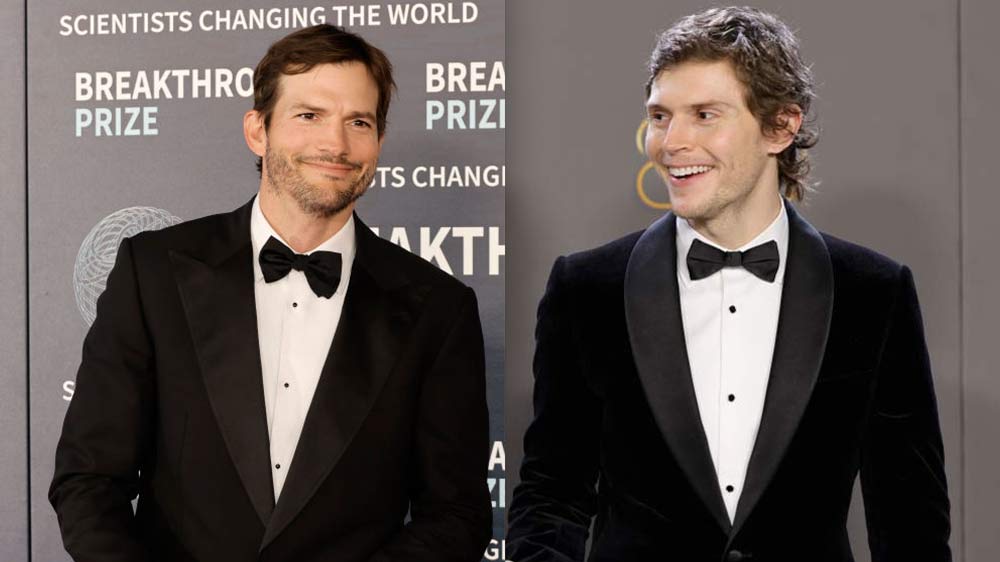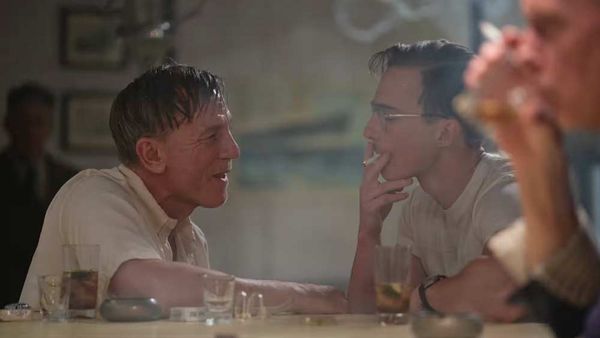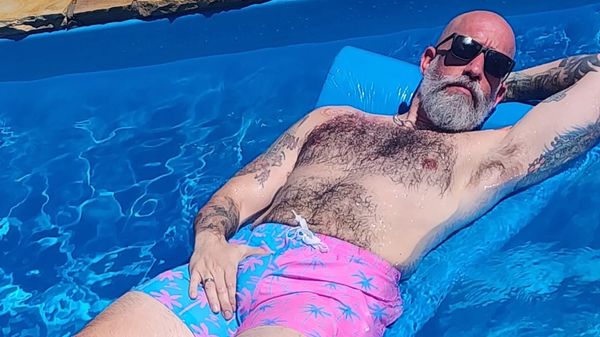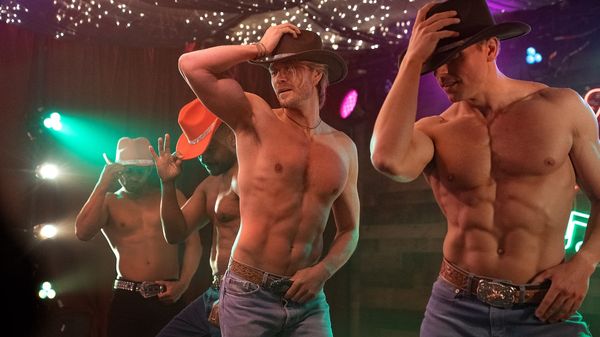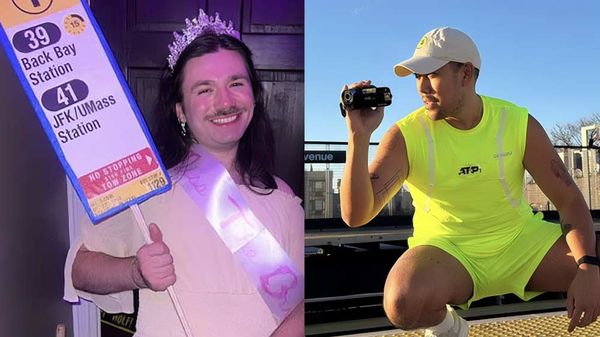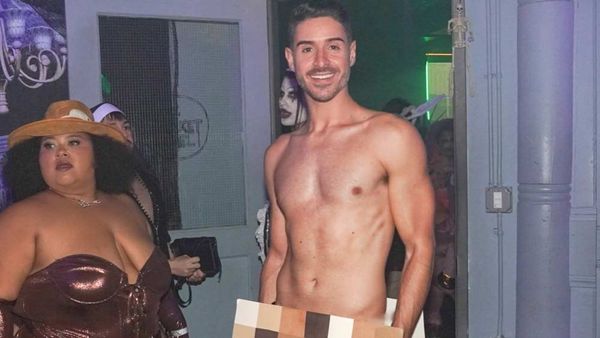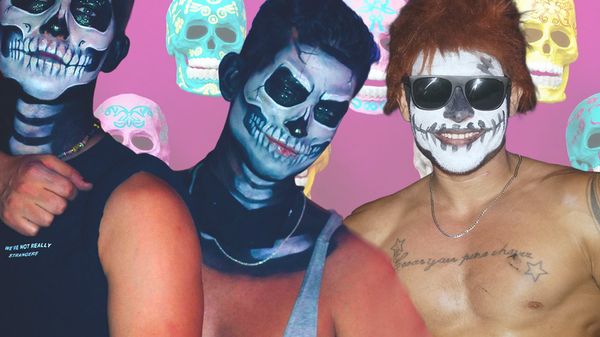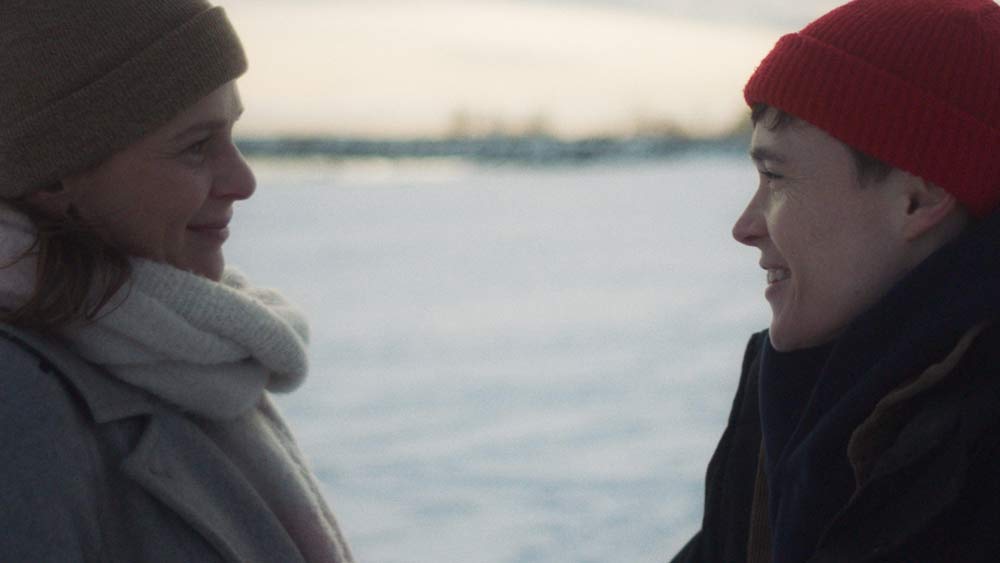
Aug 17
EDGE Interview: Trust Is the Key – Director and Stars Discuss Improvisational 'Close to You'
Kilian Melloy READ TIME: 7 MIN.
Elliot Page stars, co-writes, and produces for the Dominic Savage film "Close to You," a film using improvised dialogue that finds Sam, a young transgender man who is disaffected from his family, returning to his hometown for his father's birthday. He's anxious and glum until he encounters his high school best friend, Katherine (Hillary Baack) – someone for whom he has harbored a longstanding love. But is that love requited? And if it is, does it extend beyond friendship?
For that matter, has their friendship survived the passage of time and Sam's transition?
It doesn't seem so at first, with Katherine acting in a manner that seems barely short of standoffish. But after an emotionally harrowing visit with her family – where some are supportive, some are critical, and one in-law is downright hostile – Sam and Katherine reconnect and find their way past their initial awkwardness. What will things look like between them after so long, and after profound changes in both their lives?
"Close to You" is something of a reunion for Page and Baack, as well as their characters, with the actors having worked together on the Brit Marling/Alexander Skarsgård film "The East" (2013) and maintained a friendship for years.
Being an improvised film, it called for a certain amount of trust between the two, as well as between themselves and director Dominic Savage, a former child actor with credits in Stanley Kubrick's 1975 film "Barry Lyndon" and the 1978 British series "The Devil's Crown," where he portrayed a young King Henry II. After moving into directing TV movies for the BBC (2002's "Out of Control," 2009's "Free Fall") Savage helmed British features including 2005's "Love + Hate" and 2017's "The Escape," as well a five-part television anthology he co-wrote with five the female leads of each segment. That level of collaboration may have may Savage the ideal candidate to co-write the film with Page, as "Close to You" tackles themes of acceptance, rejection, misgendering, and the pursuit of love despite (or defiance of) longstanding gender conventions.
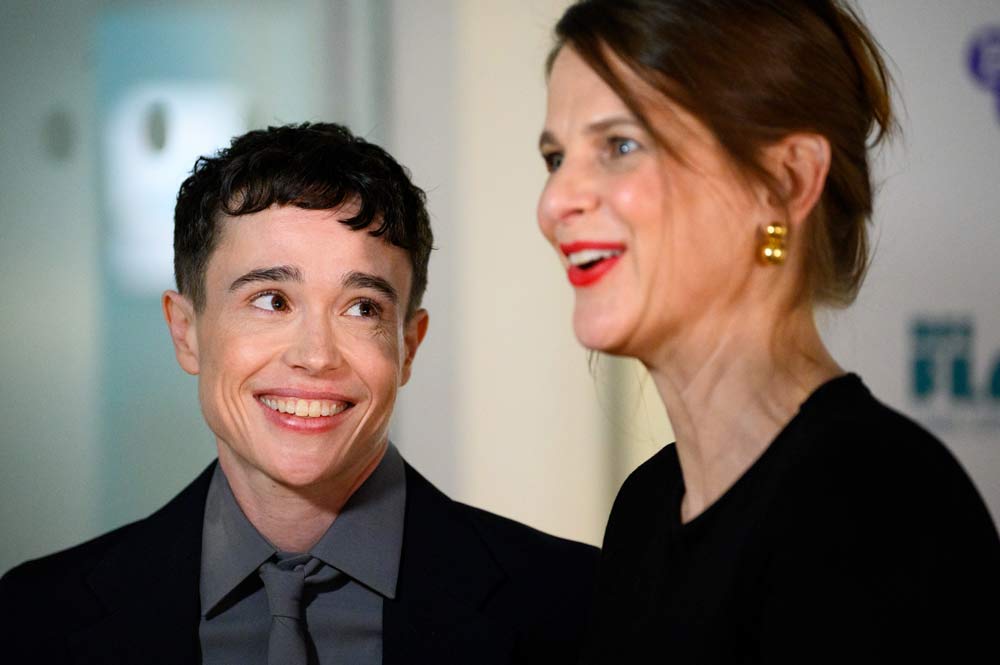
EDGE: How much of the film's improvisation was something you agreed on beforehand, and how much unfolded as you bounced off each other?
Dominic Savage: I've been working in this way for a long time, and it always produces something quite palpably different on screen. It's a different viewing experience, almost. I know how the process works at its best, and it works at its best by going with it – always giving something a go, giving it a try.
In the end, it's about being very pure in your feelings and very willing to jump into something and see where it goes. It requires everyone being committed to that way of working, and it works because everyone is in the same place. They are being very honest and very truthful within themselves, very open to the emotions that they'll feel, and not shying away from anything, so there's nothing really to fear... but, of course, there is [something to fear] as well, because it doesn't always go to plan, and then you have to try different ways and experiment with different tones. But we ultimately do get there. There's nothing more satisfying than making a scene that has some incredibly powerful moments of truth.
EDGE: As actors, were there times that you said to yourself, "Where are they going with this?" but just had to have faith in your scene partner and forge forward?
Hillary Baack: I feel like we understood where the overall story was going. There were times when I would say, "You don't want me to say all these things I'm thinking right now, do you?" – which is also real life, so you make it real. For the most part, I felt clear about where we were going, and I felt trusted and empowered to play within that space with Elliot.
Elliot Page: Yeah, I would definitely have the... I'm thinking of the word joyful, because getting to work in this way is so joyful, even when it's incredibly emotional and taxing in the way you get to experience whatever that beautiful, inexplicable thing of acting is, and go deeper into it, and deeper into it, and deeper into it. And if there was anything surprising, like a character I wasn't expecting to walk in and ask a certain question, that made me pivot. It could be surprising, but it was usually in a way that was so incredible, because it's so rare working conventionally that you get that. It creates, for me, a dream scenario. It's like playing make believe when you were six in your bedroom, and this whole environment that we're creating together becomes our playground.
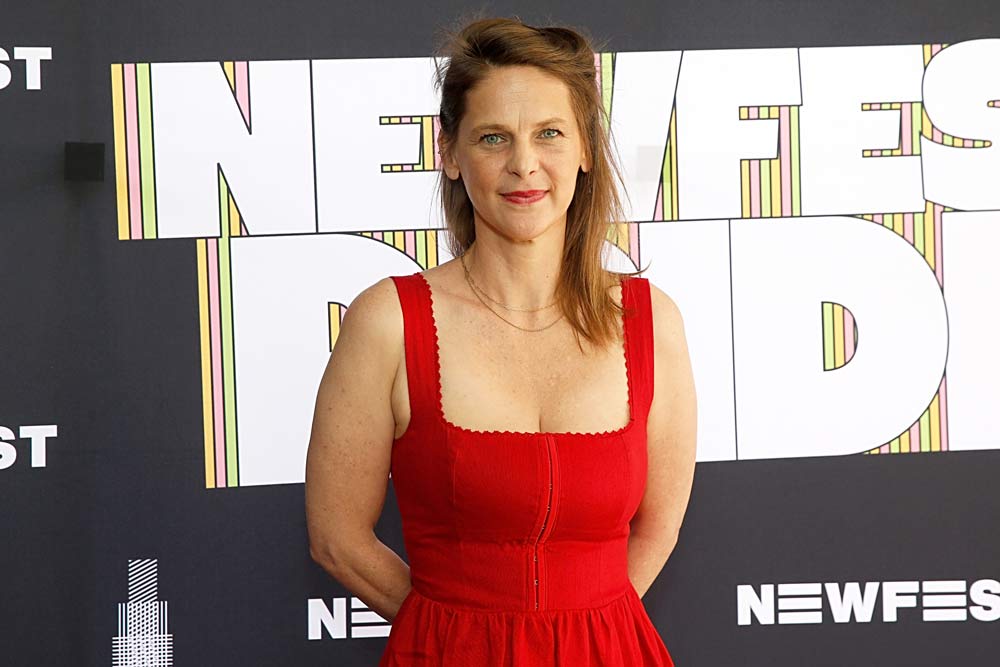
EDGE: How much of what Sam is saying to his family would you have wanted to say over Canadian Thanksgiving dinner or some other family gathering?
Elliot Page: Gosh... my personal situation and family dynamics are very different than Sam's, but of course, there'd be certain things I'd say in this film that related to feelings I've had, or experiences I've had – specific things came from a place that Elliot relates to. But Sam's is quite different.
EDGE: I was so glad there was representation for the deaf and hard of hearing community in the movie.
Hillary Baack: Elliot told me he thought there was a project that would be perfect for us to do. We had been talking about wanting to do something together for a while, and of course I was so honored and thrilled. And then I met Dominic, and I was like, "This is exactly the kind of thing I want to be doing."
I don't think that Elliot wanted me [to be involved in this movie] because I'm deaf; I think that was beside the point. I think it was just about connection, and I happened to bring that extra layer of complexity and another chance at representation. It's so exciting to me as a deaf actor; you know, there's not a ton of opportunities, but there's none where the story is not about deafness. It was exciting that I could just be a girl from the past, and I happen to be deaf.
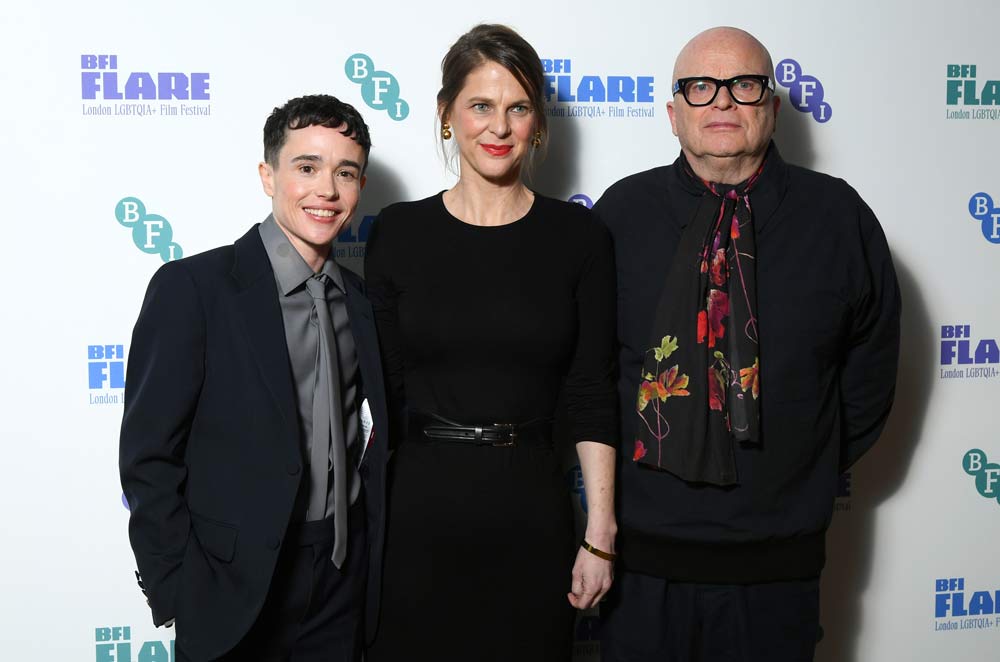
EDGE:: Not to give any spoilers, but I began to wonder a bit toward the end if what we see in the film is a matter of Sam's imagination – how he wants things to be, rather than how they really are?
Domonic Savage: Well, absolutely it is [real]. But what I like about cinema is it's open to interpretation, and the fact that you felt that is part of the deal of watching a film, isn't it? The way I like to make films means that there is a degree of not wanting to be always intentional with everything you're doing. I don't want to sound too mystical about it, but I love cinema that allows us to go with something and really feel it. I think that's what I'm proudest of about this film, that from what I can have witnessed, audiences feel something quite profound when they watch it. It's another kind of experience. I think it's the emotions that do that. It's a really sensitive piece; there's a lot of very delicate emotions being expressed, and I think that's sort of unusual.
Elliot Page: For me, it can be read that way, because when we do see Sam with Katherine, he's different. He feels truly seen. And, yes, his family is accepting, and they love him for who he is, and all that, but they still have their own projections and expectations of what they think is going to make him feel happy and comfortable, whereas when he's with Katherine we see him present [with her].
As Elliot, and as Sam, certain things that Katherine says to him are just so meaningful, where he feels understood in a way that he's not feeling in those other spaces. When they're together there is a dreamlike quality because he's floating in a way that he can't when he's around his family, and all those dynamics are happening, which I think so many people can relate to, regardless of identity.
EDGE: Right-wing politicians and commentators have been so persecutorial toward transgender people and LGBTQ+ people in general. Is it your hope that this movie will speak to the queer community, but also to the people who, like Sam's family, just may not get it?
Dominic Savage: The hope with the work one makes is that it can affect change; that in some way it's worth the journey that we've been on that allows people to understand and to empathize – to care more, in general. I think that's the point, isn't it? That is a great hope to have, and I think we all have it. I was saying to Elliot that when I've shown the film, when someone comes up to say what it has meant to them and what it has done for them, and how important it feels to them, then I think that is why I make films. That person represents everyone in some ways.
"Close to You" is in theaters Aug. 16.
Kilian Melloy serves as EDGE Media Network's Associate Arts Editor and Staff Contributor. His professional memberships include the National Lesbian & Gay Journalists Association, the Boston Online Film Critics Association, The Gay and Lesbian Entertainment Critics Association, and the Boston Theater Critics Association's Elliot Norton Awards Committee.
